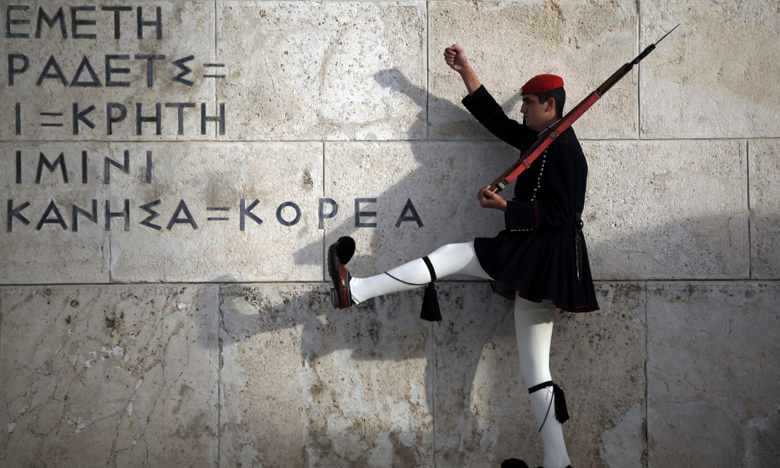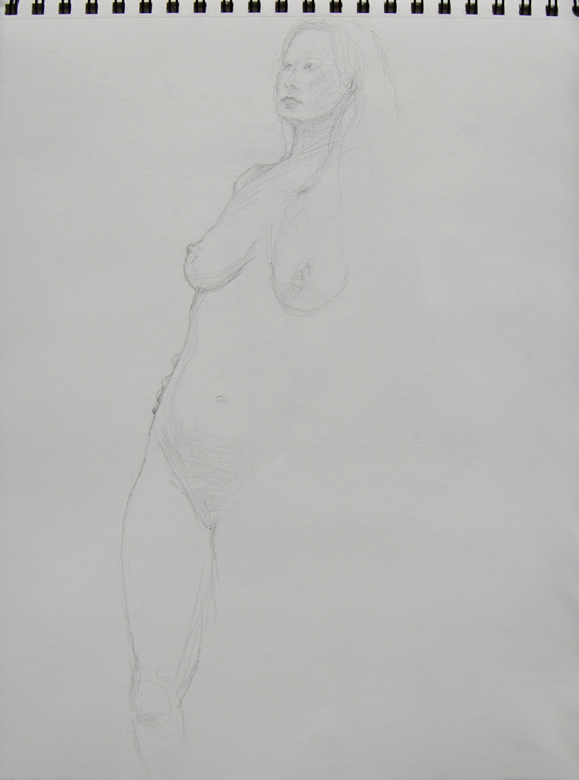LXXI
In what is otherwise a very careful piece of work, the French translator of Shitao translates the beginning of the chapter “On Groves and Trees” (chap. 12) as follows: “When the ancients painted trees, they represented them in groups of three, five, or ten, depicting them in all their aspects, each according to its own character.” Let me render the Chinese text accurately: “When the ancients traced trees, by three, of five, or nine, or ten, they did so in such a way that, in one direction or the other, either yin or yang, each should have an aspect proper to it.” In the Chinese text, neither the notion of representation nor that of depiction appears. The French translator, it seems, has introduced them to smooth out the formulation, to make the meaning more explicit and to further integrate it with our expectations, thus making his translation more fluent To that end, he neglects tha adversative terms indicating how figuration comes about, as if they were simply idiomatic expressions without importance; conversely, he names the operations involved – “represent,” “depict” – that any act of painting, once it is really trees you are painting, would logically imply, and which thus need to be reestablished conceptually.
Once again, I wonder if, on the pretext of facilitating communication by molding the meaning to fit our conceptions (which have become global, thanks to the now irrevocable success of the Western theoretical toolkit), that procedure does not conceal a difference that there is every interest in resolutely bringing to light, in order to explore its radicality, foster its fruitfulness, and in that way, perhaps, open other paths to painting. [François Jullien, The Great Image… p. 177-8, citing Pierre Ryckmans, Shitao, les propos sur la peinture du Moine Citrouille-amère. Paris: Editions Hermann, 1984, pp. 177-8]
Why can’t this crazy love be mine?
It’s not unusual…
& your pussycat nose.
“A deadly fraud is this, devis’d by the Achaean chiefs!” said Laocoön, a Trojan with horse sense.
All come to look for Homerica.
Supra, infra et circum.
Which motto, to your knowledge appears on no heraldic devices nor in the surviving texts of Virgil, Pliny, or Quintus Smyrnaeus. Some say Catullus, though, depending on translation.

What you read, yes.
And how.
Two humpback whales walk into a bar
Intransformation, mon amour.
Sister Writer: the story of the world is pulsing through your every breath. Why not let your hand respond?
Christ on his heliotropic unicycle
Return to the practice to find you never left.
Nor did it.
In Cockney, as in electrical transmission: Ohm is where the ‘art is.
Soften the gaze; anything can happen.
Aaron Stiles said that.
Everything proceeds from breath.
Brother Writer: even the ten thousand things that, like your words, are always coming and going.
Generating, animating, regulating.
The ribs lie beneath the chest. When Zhen (thunder) is beneath Gen (mountain), Hexagram #27: Yi (Nourishment) is formed.
The Chinese word Yi means self-cultivation and nourishment. The Yi ideogram means chin, cheek, jaw, to nourish.
Thunder is movement and mountain is stillness. The lower jaw (Zhen) moves against the still upper palate (Gen) to chew or talk, nourishing others through instruction and teaching.
Zhen and Gen can also represent physical and spiritual nourishment. The upper trigram (Gen) represents spiritual nourishment that you give others, and the lower trigram, (Zhen) the physical nourishment you provide for yourself. [Tom Bisio, Decoding the Dao, p. 353]
Separation, no separation.
Every movement of the mind leads qi somewhere.
Focusing on distinctions can lead to internal disharmony. One breath can lead qi home.
Sister Artist: soften the gaze and listen. When you can listen, forget the ears and listen with the qi-breath.
It can take years to achieve, but there comes a time when, if you touch hands with an opponent, you no longer feel your own energy confused with his. Rather you sense his movement, even before his nerves have fired.
The story goes that one master’s art of the brush became more beautiful after the artist heard the leaping waters of Jai-ling one night; and the momentum of another master’s brush became more lively after he saw Lady Gong Sun doing the sword dance. These stories point to the idea that every engenderment of the line in the art of painting and writing stems in the first place from the integration of a vital rhythm and not from a capacity to represent. It stems from the figuration of a continuous transformation of forms in accordance with the rhythm animating them… In short, they confirm that in China, painting stems more from a kinetic-energetic apprehension than from an aesthetic perception. [Jullien, The Great Image… p. 203]
Parades were plentiful:
a thousand slide trombones,
police for crowd control,
bell-ringing for the bones…
Wisŧawa Szymborska, “Funeral (I),” Poems: New and Collected. Stanislaw Baranczal and Clare Cavanaugh, trans. New York: Harcourt and Co. 1998.
Sister Writer: by making yourself available to the propensities of words, you may exploit their full force.
You will not need to direct them by conceiving-applying yourself or your “creativity,” nor will you be governed by words, as if the initiative fell to them. You will be neither active nor passive, rather established as the necessary condition connecting myriad inductive factors, a conduit for an unfolding reality traversed by a continuous exchange between its poles. [Adapted from Jullien, The Great Image… p. 205]
Borrower? Lender? Why play that game? Why not wrap like fascia, flow like qi?
Brother Writer: what is language but a vowel movement along the consonantal divide?
Ah, but consonantal drift…
That which is most radical adds the least.
Sister Writer: you need compose nothing; all letters originate from and return to the great fount.
Invention, it will be observed, necessitates need.
Have we not created, invented, brought into being a mindless object factory for the purpose of exercising and affirming our subjectivity?
Must we not bring a plethora of objects into being in order to assure our existence in relation to them? That is: the objects, grasped at like so many straws, “solve” the problem of the possible void status of the subject – its non-being.
And it is indicative that the landscapers of the High Line, in all the sophistication of their gardening arts, decided not to leave even one square foot of the beauty-been?
Could not tolerate even the trace of
LESSON
Subject King Alexander predicate cuts direct
object the Gordian know with his indirect object sword.
This has never predicate entered anyone’s object mind before.
None of a hundred philosophers could disentangle this knot.
No wonder each now shrinks in some secludes spot.
The soldiers, loud and with great glee,
grab each one by his trembling gray goatee
and predicate drag object him out.
Enough’s enough. The king calls for his horse,
adjusts his crested helm and sallies forth.
And in his wake, with trumpets, drums and flutes,
his subject army made of little knots
predicate marches off to indirect object war.
[Wisŧawa Szymborska, Poems: New and Collected. Stanislaw Baranczal and Clare Cavanaugh, trans. New York: Harcourt and Co. 1998]
“Be witty this minute! Use me for example,” demands the King Louie of Baron Ponceludon. “But sire, the king is not a subject,” replies the baron. Louie turns to a courtier, uncertain as to whether Ponceludon’s response contained wit. “Admirable. Not a pun, I hope?” The courtier: “No, sire. A play on words.” Louie: “Ah, most memorable.” Still insecure. [From the film Ridicule]
If you can keep your head…
Predicate. Louie, Louie.
Museum of (modern) fear.
A skeleton walks into a bar.
I’m just saying.
I’m just sane.
Just.
I was a be-all and end-all for the FBI.
Jaques: Can you nominate in order now the degrees of the lie?
Touchstone: O sir, we quarrel in print, by the book; as you have books for good manners: I will name you the degrees. The first, the Retort Courteous; the second, the Quip Modest; the third, the Reply Churlish; the fourth, the Reproof Valiant; the fifth, the Countercheque Quarrelsome; the sixth, the Lie with Circumstance; the seventh, the Lie Direct. All these you may avoid but the Lie Direct; and you may avoid that too, with an If. I knew when seven justices could not take up a quarrel, but when the parties were met themselves, one of them thought but of an If, as, ‘If you said so, then I said so;’ and they shook hands and swore brothers. Your If is the only peacemaker; much virtue in If.
Jaques: Is not this a rare fellow, my lord? He’s as good at any thing and yet a fool.
Duke Senior: He uses his folly like a stalking-horse and under the presentation of that he shoots his wit.
[Like It As You (Act 5, Scene IV, The Forest. Near the sheepcote.)]



